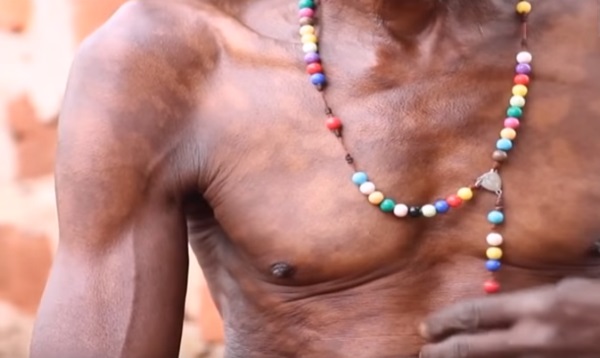Figures from the Ministry of Health indicated that 266 people were infected with Leprosy across 13 districts with the most affected being Luweero, Nakaseke, Kumi among others. At least 6% of those infected were children below 15 years. Luweero is among the most affected districts with 50 people on treatment, 9 of them from the same family. Matia Ndabitayi a resident of Lutoma in Kyukyuma Sub-County has lived with leprosy for the last 6 years. He can’t recall how and where he contracted the disease. “The causative organism is a bacteria which we call micro bacteria lipri. So this is the disease that affects the skin, we take it as a disease of the skin but it eventually affects the nerves.”
It started as a small mark on the stomach but later the whole body was affected. He visited a number of health facilities before he was told he had a disease he had never heard of. “Symptoms like getting a skin paunch, a skin illusion which does not pain and it doesn’t inch. People are there in the communities; they call them ringworms, they call them oluwumu. But before saying its oluwumu, go for examination.” Ndabitayi has been taking his medication daily but there is not much change. The disease paralyzed his toes and fingers, many times he gets bans. Eight other people in Ndabitayi’s family had leprosy. “Absconded from treatment so that’s how he came to spread to all other members of the family; the daughters, the sons plus even his brothers. And we are putting that family on surveillance we know more other cases are going to be identified from that family.”
Ronald Mubiru the leprosy focal person in Luweero district said it is an airborne disease caused by a bacteria. Contact with an infected person can also spread the disease. “Eventually it may start as small paunch but it goes on increasing then finally the nerves are being affected.” Leprosy paralyzes body parts and in its advanced stages, the infected person can lose body parts like fingers and toes. Mubiru said the closely monitor the infected people to ensure adherence to drugs to reduce new infections. “Following them up, we go to their families and we also do visit especially this family. There is a team which comes from the Ministry combined with a team from the district we go there every after 3 months to visit and we re-examine on this family.” Ndabitayi and Nampa said they had not been discriminated against and this gave them hope that one day they will overcome the disease which many consider a curse.

